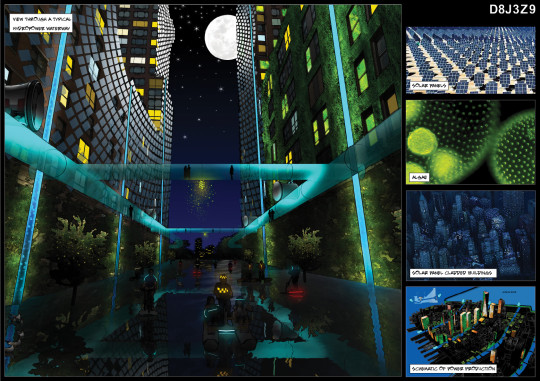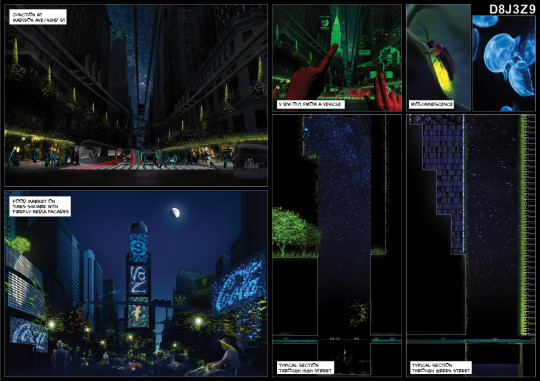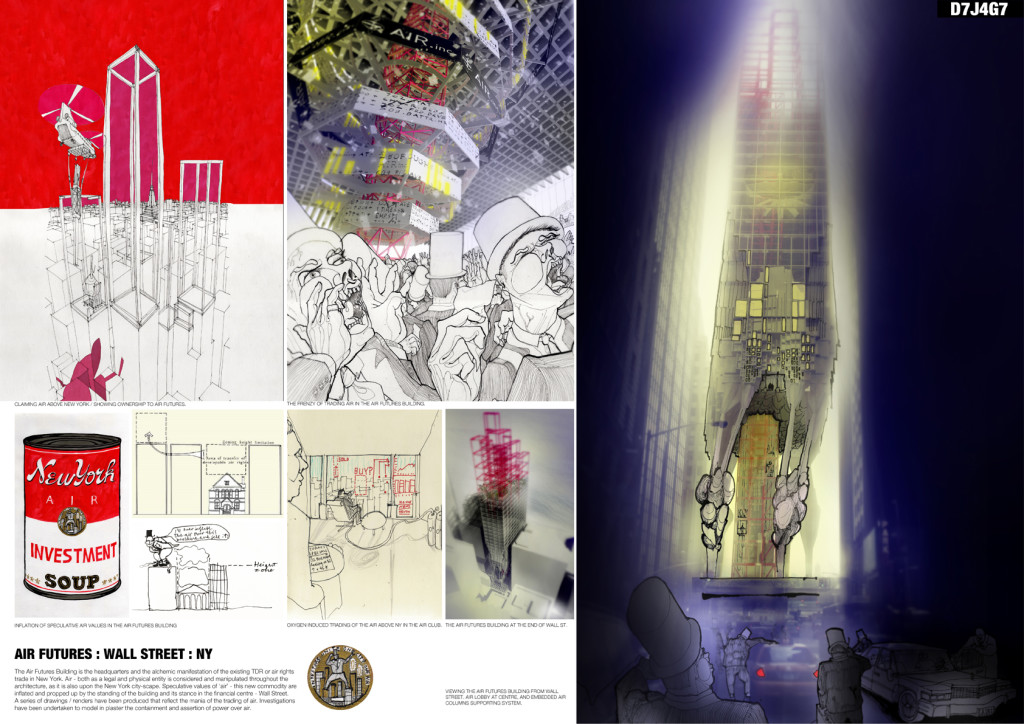Info:
Title: City of Darkness Humans - Code: D8J3Z9Contest: NY / 2012
By: K. Asfuroglu - B. Roos - S. Streatfield - H. Toyoda - J. Zanotto
Views: 2442 Likes: 2
Votes:
JOSHUA PRINCE-RAMUS2 EVA FRANCH I GILABERT0 ROLAND SNOOKS1 SHOHEI SHIGEMATSU1 ALESSANDRO ORSINI3 MITCHELL JOACHIM31.7
City of Darkness Humans

 City of Darkness Humans have always had an appetite for light. From primitive man huddled around communal fires to today’s high-tech media facades, light has been seen as a precious and desirable commodity. Technology has allowed our night-time cities to become made of light – it no longer simply allows us to see, but to communicate, navigate, advertise, celebrate and decorate our cities at night, banishing darkness from almost every corner. In doing so, we have obliterated our view of the night sky, disturbed wildlife, interrupted our own physiology and well-being, created visual noise and consumed incredible amounts of energy. As a visible form of energy use, light has become a symbol of our ever-increasing consumption and over-indulgence. We once craved and gravitated towards light at night – now have no escape from it.
City of Darkness Humans have always had an appetite for light. From primitive man huddled around communal fires to today’s high-tech media facades, light has been seen as a precious and desirable commodity. Technology has allowed our night-time cities to become made of light – it no longer simply allows us to see, but to communicate, navigate, advertise, celebrate and decorate our cities at night, banishing darkness from almost every corner. In doing so, we have obliterated our view of the night sky, disturbed wildlife, interrupted our own physiology and well-being, created visual noise and consumed incredible amounts of energy. As a visible form of energy use, light has become a symbol of our ever-increasing consumption and over-indulgence. We once craved and gravitated towards light at night – now have no escape from it.
NY has always been a powerful symbol of western culture and must act as a role model for the future. Increasing consumption and the search for alternative fuels will inevitably impact upon on the balance of the earth’s ecologies. The approach to the future urban design of NY must be optimistic and innovative. We believe that new technologies will enable the complex organism that is the city to harmonise with the natural world. The city must embrace, learn from and delegate to nature.
Hydropower: The Hudson River flows south where it meets East River. NY lies at the sea level. Flooding will be one of the city’s future problems. Channelling water through the city would allow NY to harvest energy that is in abundance on its doorstep. Canals would help the city to regulate its water level and could be used for public transport.
Solarpower: Current technology allows us to produce lightweight, flexible, transparent PV cells. Introducing a smart PV skin to NY buildings would allow the city to harvest solar energy. Automated PV cells with sensors would track the sun’s path, just like sunflowers, maximising energy gain through the day.
Vertical Gardens: Modular hydroponic-fed allotments and algae bioreactors will clad facades overlooking the ‘green streets’ of NY. Residents will be able to grow their own vegetables – even in shady areas with the help of solar-powered LED grow-lights. Office windows will be clad with algae cells, allowing the bright lights of late-night offices to be used to encourage algae growth. Waste water will be used to grow the algae, which in turn will consume C02, clean the water and create biofuels.
Bioluminescence: Light is created in nature through bioluminescence. Scientists will create genetically-engineered plants that naturally glow during the night to illuminate the public realm. Fireflies will be attracted to facades, canopies and meeting places to provide localised light during the night-time.
Transportation: People will navigate the city via a series of advanced transport technologies – fully automated vehicles will communicate with the surrounding environment (including other vehicles and pedestrians). Intelligent self-powered road surfaces with built-in PVs and OLEDs will replace traditional road markings and signalling.






